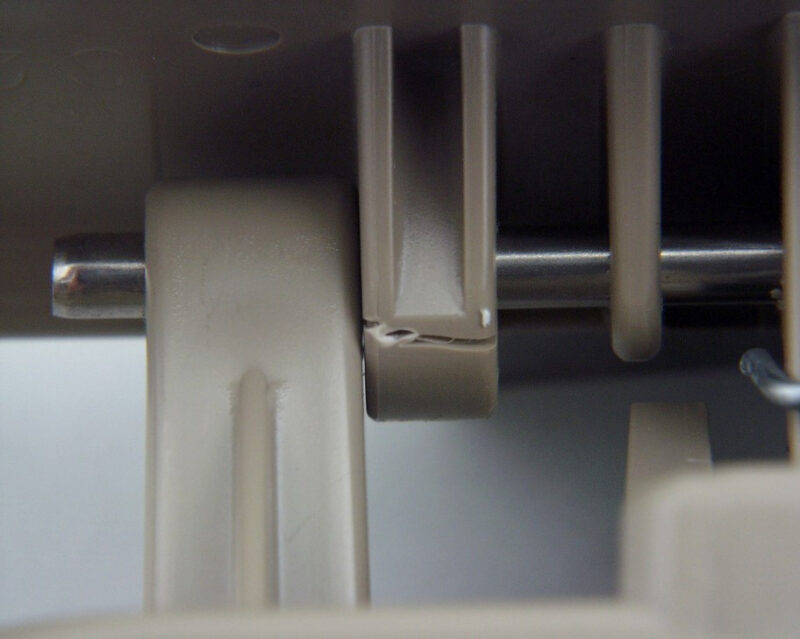This article originally appeared in Advanced Materials & Processes – June 2004
Environmental stress cracking (ESC) is a phenomenon in which a plastic resin is cracked by a chemical agent while under stress, and it is the leading cause of plastic component failure. It is a solvent-induced failure mode, in which the synergistic effects of the chemical agent and mechanical stresses result in cracking. A recent study showed that 25% of plastic part failures are related to ESC.
ESC is a phenomenon in which a particular plastic resin is cracked through contact with a specific chemical agent while under stress. The synergistic effects of the chemical agent and mechanical stresses result in cracking. The chemical agent does not cause direct chemical attack or molecular degradation. Instead, the chemical penetrates into the molecular structure and interferes with the intermolecular forces binding the polymer chains, leading to accelerated molecular disentanglement.
The mechanism steps involved in ESC failure are similar to those responsible for creep failure, and include fluid absorption, plasticization, craze initiation, crack growth, and finally fracture. Because the ESC process depends on the diffusion of the chemical into the polymer structure, the rate of fluid absorption is a critical parameter in the rate of both craze initiation and crack extension. The more rapidly that the chemical agent is absorbed, the faster the polymer will be subjected to crazing and subsequent failure. Recent comparisons have illustrated creep as a special condition of ESC. Under this model, creep is simply ESC with air as the chemical agent, the principal difference being that the presence of an active chemical agent accelerates the disentanglement process. This acceleration results in a significant reduction in the time to crack initiation, and substantially increases the speed of the extending crack, thus shortening the time to failure. Alternatively, ESC cracking develops at reduced stress or strain levels relative to creep failure in air.

